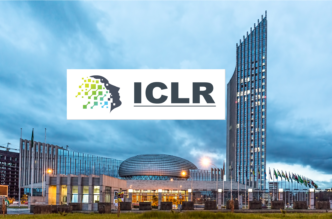Despite being home to some of the world’s wealthiest investors and a booming property market, Saudi Arabia remained surprisingly data-poor when it came to real estate—until recently. This gap in reliable property data caught the attention of entrepreneur Ahmed Bukhamseen, who founded Quant with one mission: to reshape how real estate investment decisions are made in the kingdom.
Ahmed’s vision was simple but ambitious—give buyers, investors, and speculators access to transparent pricing and property data that had long been out of reach. For years, unreliable or outdated information plagued the market. Quant set out to change that by aggregating a wealth of data points—from official price listings and real-world sales figures to geospatial data, satellite imagery, and details of new and ongoing developments.
Speaking at the Mobile World Congress (MWC) in Barcelona, Ahmed shared how data compliance and infrastructure became a key part of Quant’s journey. When Saudi Arabia rolled out data protection regulations similar to Europe’s GDPR, the company had to rethink its hosting strategy.
“Our first challenge was complying with these new rules from the Saudi Data and AI Authority. That pushed us to shift from Microsoft Azure in Europe back to local Saudi hosting,” Ahmed explained.
While Huawei has a solid footprint across Saudi Arabia, the Middle East, Africa, and APAC, partnering with the Chinese tech giant wasn’t Quant’s immediate choice. But that changed as their data demands grew.
“We discovered Huawei’s cloud services late—about a year ago. But once we tested their platform, especially for latency, they quickly became the right fit for us,” Ahmed said.
Quant’s platform has evolved beyond its initial role of tapping into Saudi municipal records. Today, it enriches that data with high-resolution satellite imagery and local insights, providing a detailed view of Saudi Arabia’s property landscape. The stakes are high. Initially, their system processed data on the edge without storage. But as new use cases emerged—like storing enriched imagery and running AI models—costs soared.
One major cost driver? The frequent satellite images Quant now pulls to keep tabs on real estate developments. What started as a bi-weekly data grab is now shifting to daily satellite feeds, capturing construction progress and changes in real time.
“Our mobile app needed to deliver a seamless experience, even while streaming heavy data like these images. Huawei’s low-latency cloud made that possible,” Ahmed noted.
Quant’s app is designed to open up Saudi Arabia’s property data to everyone—from first-time homebuyers to seasoned investors, portfolio managers, and even landlords. What used to be a guessing game in terms of pricing is now a data-driven experience, giving users clear visibility into property prices, zoning permissions, and neighborhood growth potential.
By layering various data sets—property prices, satellite images, maps, and government-approved planning documents—Quant creates a comprehensive property discovery tool. The goal is simple: eliminate market opacity and help users make smarter decisions.
But the work doesn’t stop there. Quant is now exploring AI-driven feature detection models that can identify what’s really happening on a piece of land. “Municipality records might say a plot is zoned for a warehouse, but the owner could have built something else. With AI and satellite imagery, we can see what’s actually there,” Ahmed explained.
Rather than building this massive computing capability in-house, Quant turned to Huawei again. “Deploying our model in-house would take six months. With Huawei, we get results in four hours—and we now run these models weekly,” Ahmed shared.
Looking ahead, Quant is eyeing new services that analyze demographic data to guide retailers on where best to open stores—a crucial insight in a country where cityscapes are expanding rapidly. Another project on the horizon aims to bring the same level of transparency to Saudi Arabia’s rental market, an area that has long lacked reliable data.
According to Ahmed, the country’s property investment growth is unlike anywhere else. “We don’t talk about 2% or 5% gains. We’re talking about multiplying investments, just like what you saw in the Bitcoin market,” he said.
With the right data in hand, foreign investors will soon be able to browse Saudi real estate opportunities and close deals with just a tap on their screen. “To make those decisions, they need to know the growth areas and the real costs. That’s the future we’re building.”












